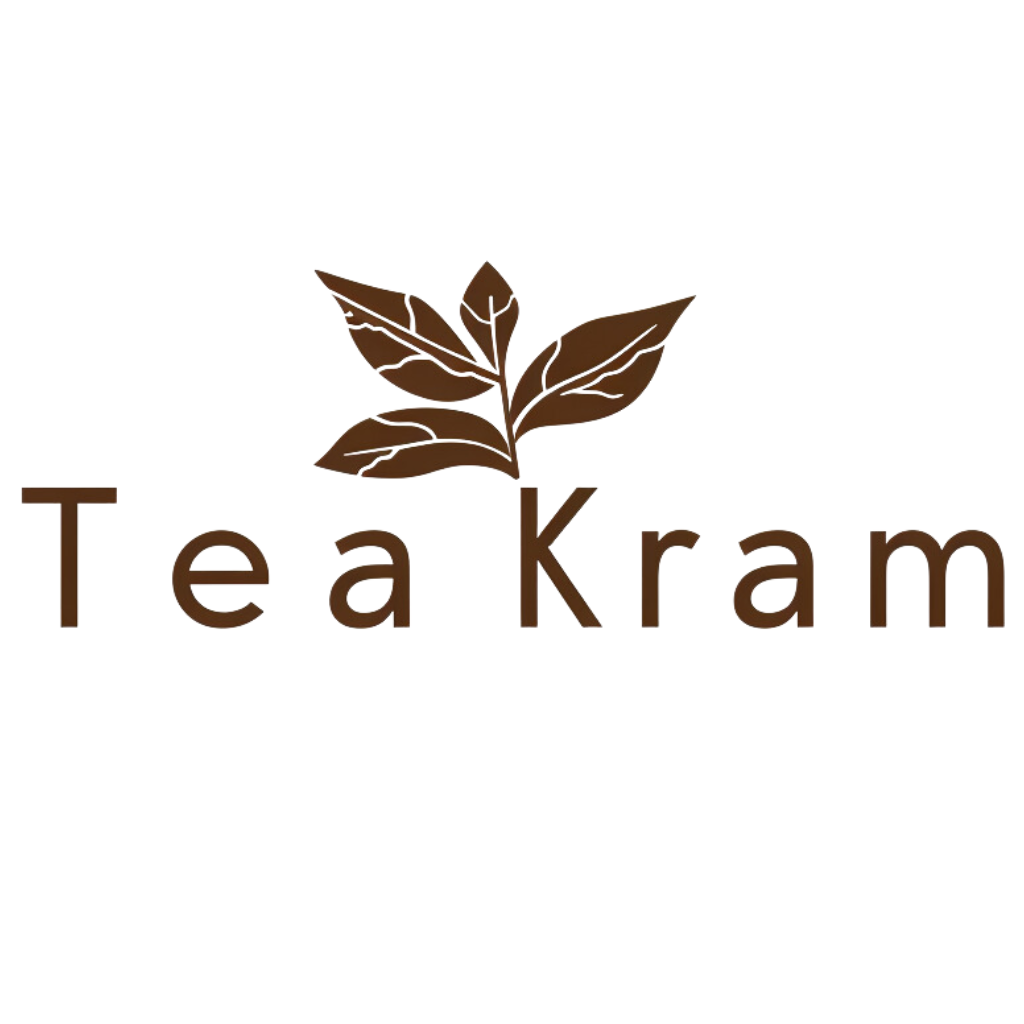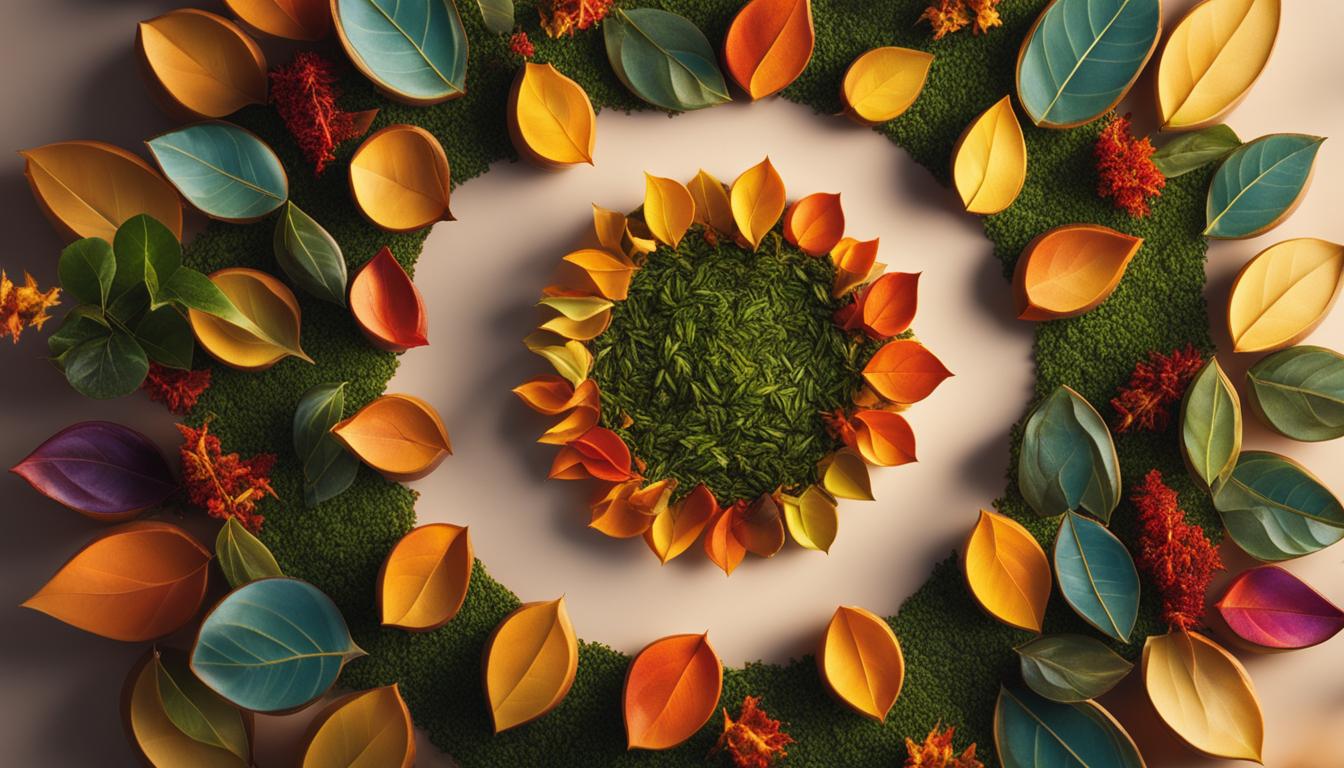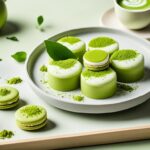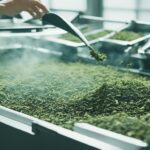Begin an enchanting journey through the aromatic groves of luxury with rare and exotic teas. Embark on an epicurean adventure where each sip beckons a story untold, and every unique tea blend is a treasure to behold. Within this realm of splendor, tea aficionados can indulge in the opulence of the finest luxury tea options, meticulously cultivated to enliven the senses and elevate the spirit.
Key Takeaways
- Understanding the value of rarity in the tea spectrum.
- Exploring the world’s hidden tea treasures.
- Discovering teas from remote and untouched regions.
- Encouraging a refined palate with unique tea blends.
- Highlighting the exclusivity of luxury tea options.
Embark on a Journey Through the World of Exotic Teas
The quest for unique flavors leads us into the artful world of gourmet teas, where each sip promises a story that originates from the distant lands and treasured traditions of its creation. Tasting these specialty teas is akin to a sensory expedition, where rare tea leaves act as aromatic ambassadors of their native soil.
Discerning tea enthusiasts venerate the layered complexity and the rich tapestry of tastes presented by teas that are meticulously cultivated and handpicked in remote gardens across the globe. These exclusive brews are the hidden jewels within the vast treasure trove that is the tea world, offering a palette of flavors that range from the deep, earthy undertones of aged pu’erh to the delicate, floral notes of a white silver needle.
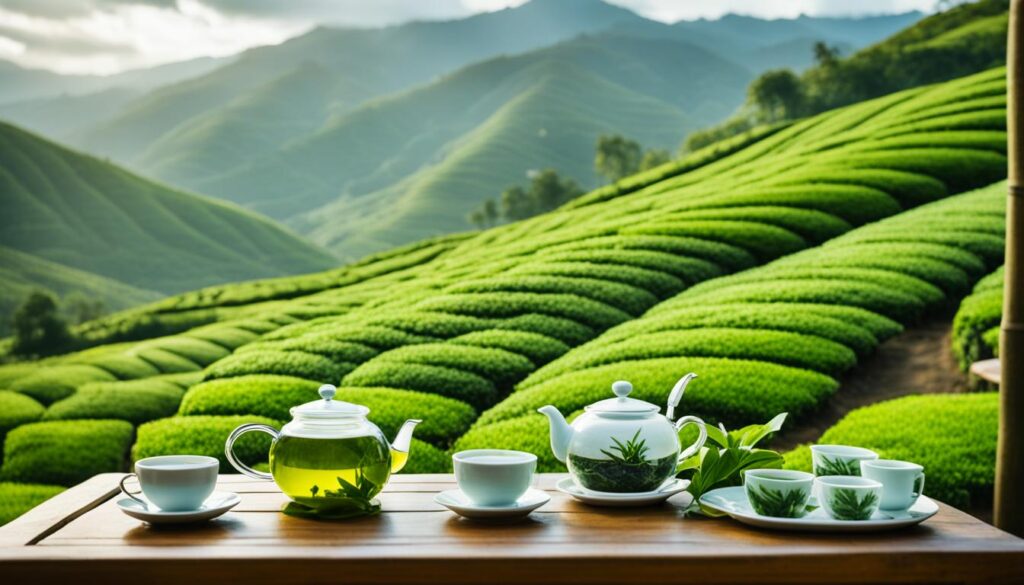
To truly appreciate the diversity of these captivating elixirs, one must delve into the origin stories of these leaves. Let us briefly luxuriate in the rich panorama of gourmet teas found in select regions:
- Darjeeling, India – often referred to as the ‘Champagne of Teas,’ the exquisite black teas here bear a musky-sweet tasting profile akin to muscatel grapes.
- Anxi, China – this region gifts us with the renowned Tieguanyin oolong tea, a sophisticated balance of sweet and floral with a hint of cream.
- Uji, Japan – the birthplace of matcha, Uji’s tea artisans produce this vibrant green powder, epitomizing the zenith of finely ground, umami-rich green teas.
- Yunnan, China – known for its ancient wild tea trees, it provides the fervent pu’erh teas with their signature depth and complexity.
Each of these is a cherished gem within the connoisseur’s specialty tea collection, with each leaf telling its own narrative of cultural heritage, traditional methods, and the very essence of its homeland.
Indulging in these gourmet teas is more than just a beverage preference; it is a gateway to experiencing art, history, and travel in a cup. It invites us to venture beyond our comfort zones, to seek out these limited harvests, and to revere the subtleties of aromas and flavors that only rare tea leaves can unveil.
Exploring the Time-Honored Traditions of Rare Tea Varieties
As enthusiasts delve deeper into the world of teas, they encounter the essence of tradition and history brewed within each cup. Part of the allure surrounding rare tea varieties comes from their storied past and the meticulous care poured into their cultivation. The lineage of these leaves stretches back through time, spotlighting the historical significance of specialty teas and the richness they bring to the modern exclusive tea collection.
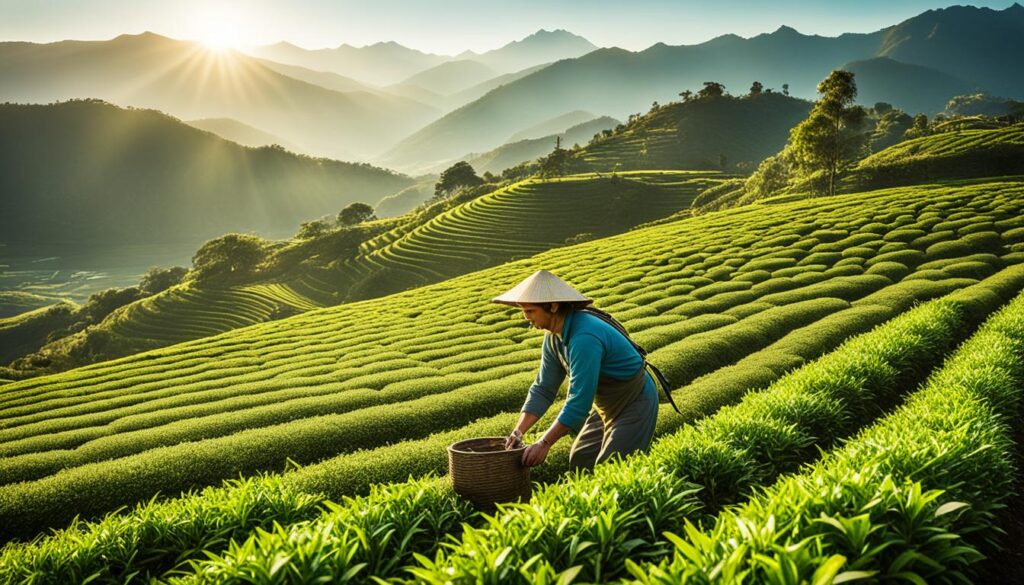
The Ancient Roots of Tea Cultivation
The seed of today’s tea experience was planted thousands of years ago. Ancient practices of tea cultivation, carefully honed over centuries, have given rise to the diverse and rare tea offerings we cherish. The craft of tea production, originally mastered in China, soon spread to Japan, India, and beyond, each region developing its own unique methods and rituals.
Historical Significance of Specialty Teas Across Cultures
Specialty teas have long held a place of reverence across various cultures. In many societies, these teas were integral to ceremonies and daily traditions, symbolizing hospitality and benevolence. We can trace the cultural impact through narratives that celebrate teas like Matcha in Japanese tea ceremonies or the storied Darjeeling in Indian tea rituals, each with its own tale to tell.
| Tea Variety | Origin | Cultural Significance | Flavor Profile |
|---|---|---|---|
| Dragon Well (Longjing) | China | Associated with Imperial patronage | Subtle, chestnut-like flavor |
| Matcha | Japan | Central to the Japanese tea ceremony | Rich, vegetal with a creamy texture |
| Darjeeling | India | Known as the “Champagne of Teas” | Musky-sweet tasting with a floral aroma |
Rare and Exotic Teas: Unveiling Their Unique Characteristics
Exploring the realm of rare and exotic teas opens a door to a sensory experience unlike any other. Each sip transports connoisseurs to a world where every flavor and aroma plays a crucial role in defining a premium tea selection. In this section, we highlight what distinguishes these captivating unique tea blends and rare herbal infusions from your everyday cup.
The exceptional quality of rare teas originates from their terroir – a term borrowed from the world of wine that refers to the environment where the teas are grown. It encompasses not only the soil but also the climate and topography, all working together to infuse each leaf with a unique character. Specialized processing methods are as important. Techniques such as hand-rolling or sun-drying contribute to the nuanced flavors that define a luxurious tea experience.
| Characteristic | Description | Examples |
|---|---|---|
| Premium Terroir | Geographical and climatic factors that contribute to the tea’s unique flavor profile. | High-elevation gardens in Darjeeling or mist-covered fields in Fujian |
| Unique Blending | Combining various teas and ingredients to create an exclusive blend. | Blends incorporating silver tips or rare matcha powders |
| Rare Ingredients | Use of scarce or uniquely sourced components that enhance the blend’s rarity and taste. | Infusions with golden monkey black tea or purple bamboo leaves |
| Aromatic Complexity | A sophisticated bouquet of scents achieved through expert blending and processing. | A fusion of floral, fruity, and earthy notes |
The rarity of ingredients also plays an essential role. Limited harvests due to specific growing seasons or the challenge of foraging wild herbs result in rare herbal infusions that boast a treasure trove of benefits and extraordinary tastes. Whether it’s a delicate white tea adorned with jasmine petals or a robust brew steeped with ginseng and licorice, the elements combined in these unique infusions create a timeless indulgence for the senses.
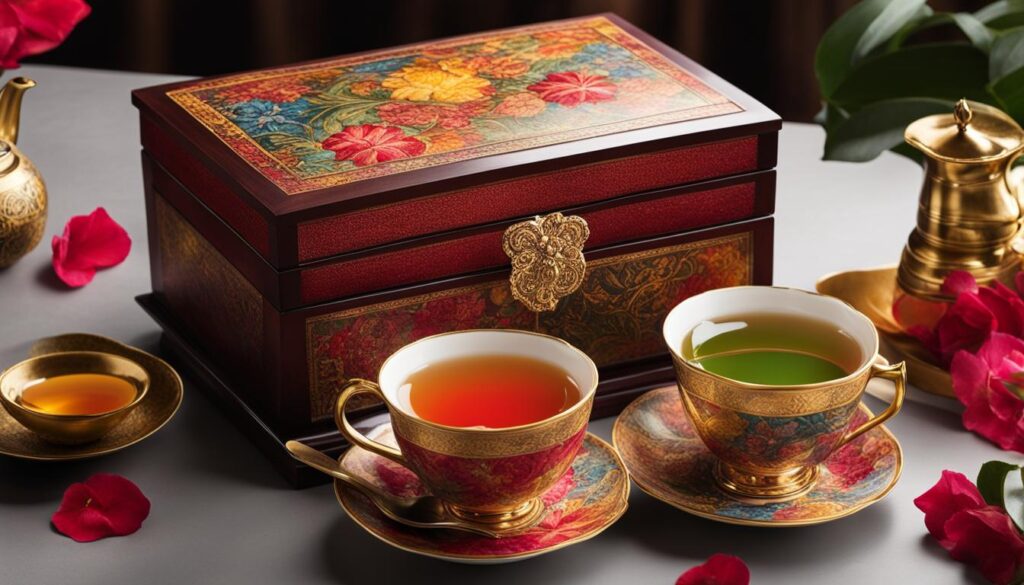
Appreciating these teas goes beyond taste. It’s an appreciation for the craftsmanship and heritage wrapped in each leaf. A premium tea selection offers not just a drink, but an impactful, sensorial journey, leaving a lasting impression with each meticulously crafted cup.
Rare and Exotic Teas
In the world of tea, the quest for the exceptional leads us to the discovery of the exclusive tea collection. The allure of these teas lies in their scarcity and the extraordinary lengths to which aficionados will go to procure them. We invite you to explore the uniqueness that sets these brews apart as we delve into what defines an exclusive tea, and track the voyage of rare tea leaves from their origin to your teacup.
Defining Rarity: What Makes a Tea Exclusive?
Several factors contribute to the exclusivity of a tea. Among these are the limited harvests that occur only during specific times of the year and in select regions known for their unique climate and soil conditions. Such luxury tea options often come from ancient trees found in remote areas, requiring skilled pickers to navigate challenging terrains. The result is a harvest that is not only rare but imbued with the unique terroir of its location, making each sip an exquisite experience that cannot be replicated.
Exclusivity in tea is also marked by the handcrafted artisanal methods passed down through generations. It is in these traditional practices that the soul of the tea is nurtured, bringing forth flavors that are both complex and deeply rooted in the land’s history.
From Bush to Cup: The Journey of a Rare Tea Leaf
The path of rare tea leaves from bush to cup is an intricate one, steeped in tradition and precision. It begins with the careful selection of leaves, where only the finest are chosen for processing. These leaves are then treated with the utmost care, often involving hand-rolling and delicate fermentation processes that have been refined to perfection over centuries. The rigorous journey continues with meticulous drying and aging, which allows the leaves to develop their full flavor profile—an alchemy of art and science resulting in a truly luxury tea option for discerning consumers.
- Hand-Picking: Ensuring only the best leaves are chosen.
- Artisanal Processing: Each step, from rolling to oxidation, is an act of craft.
- Drying: It’s not just about removing moisture; it’s about enhancing flavor.
- Aging: Like fine wine, some teas become better with time.
- Packaging: The final touch that protects the tea’s essence on its journey to luxury.
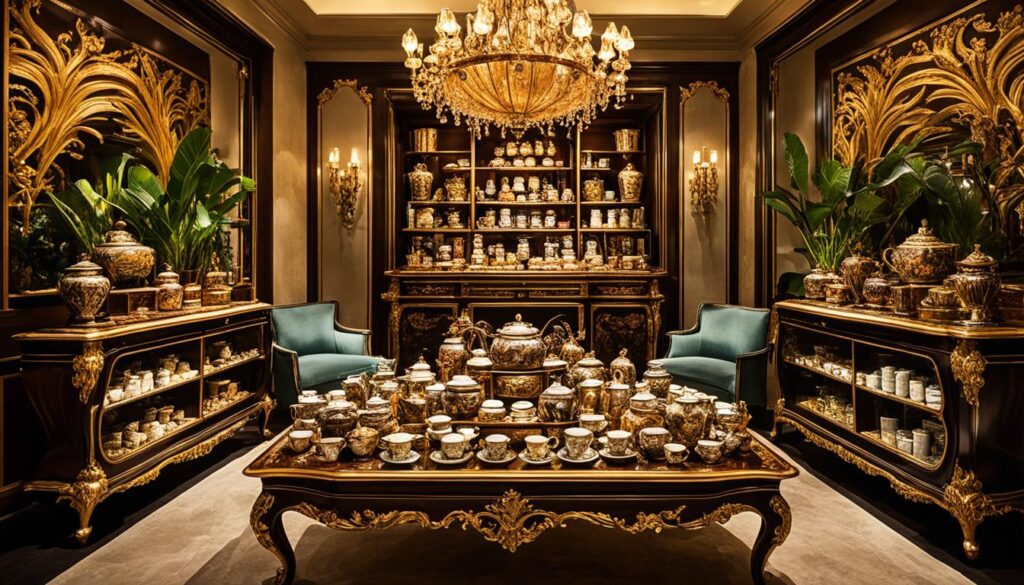
Selecting the Perfect Luxury Tea Options for Your Palate
Embarking on the quest for the ideal premium tea selection is an art form that radiates sophistication and indulgence. Whether you are a seasoned tea connoisseur or new to the world of gourmet teas, understanding how to choose a tea that meets your taste preferences is key to a luxurious tea experience. Discovering rare and exotic teas requires a discerning eye and a palate eager for exploration.
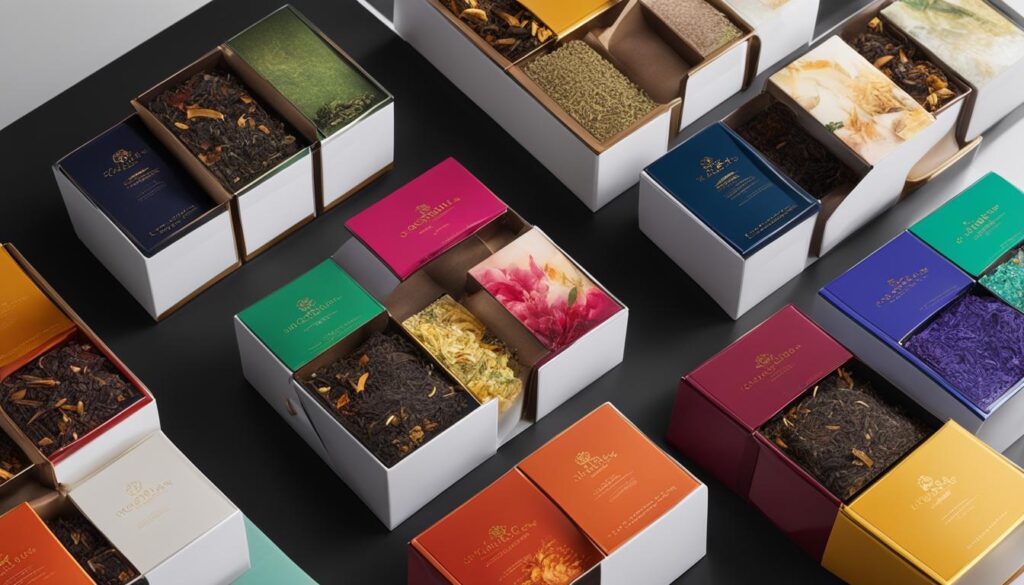
Guidelines for Sourcing Premium Tea Selections
Finding a premium tea selection can be likened to discovering hidden treasures. The following tips are instrumental in identifying the highest quality of rare and exotic teas:
- **Research Reputable Suppliers**: Seek out retailers who specialize in gourmet teas and have a renowned reputation for quality.
- **Examine Aesthetic Qualities**: Pay close attention to the tea leaves’ appearance, such as color, shape, and consistency, which are indicators of quality.
- **Curate Based on Origin**: Explore teas from regions known for their exceptional tea cultivations like Darjeeling or Yunnan.
Deciphering Flavor Notes in Gourmet Teas
Nuanced flavor profiles are the essence of what makes rare and exotic teas so coveted. Learning to distinguish the diverse flavor notes in gourmet teas can enhance your tasting experience immensely. Here’s a helpful guide to decoding these complex profiles:
| Tea Type | Flavor Profile | Notable Characteristics |
|---|---|---|
| White Peony | Delicate floral, slight melon | Subtle sweetness, low in tannins |
| Oolong Tieguanyin | Rich orchid, buttery finish | Complex, often roasted notes |
| Silver Needle | Sweet, honeyed, cucumber | Light-bodied with a silken texture |
| Pu-erh | Earthy, woodsy, aged quality | Deep, often improves with age |
With these insights, you’re well-equipped to embark on your journey towards curating the ideal luxury tea assortment that captivates your senses and exceeds your expectations. Enjoy the pursuit of that perfect sip—it’s an adventure worth savoring.
Conclusion
As we reach the end of our aromatic expedition, we are reminded of the elegance and profound depth that rare and exotic teas add to the tapestry of global beverages. Each carefully crafted leaf tells a story—a narrative steeped in tradition, luxury, and an invitation to engage in an experience far beyond the ordinary. By indulging in these unique tea blends, connoisseurs and casual sippers alike connect with the ancient practices that have transcended time and geography to bring an unparalleled sensory delight.
The allure of a specialty tea lies not just in its flavor but in its exclusivity and cultural lineage. Our exploration has, undoubtedly, elevated our appreciation for the meticulous craftsmanship that defines each sip of these enchanting brews. The distinction of each blend does not simply echo its rarity; it resonates with the passion and expertise of the artisans who ensure every cup embodies the essence of its origin.
Let this exploration be a springboard for your continued journey through the fascinating world of teas. Whether you are exploring the vivid flavors of a new blend or savoring the time-honored classics, remember that to truly appreciate unique tea blends is to embrace the diversity and richness that they bring to your cup, your palate, and your life. Carry forward the spirit of discovery and savor each moment with the same reverence as the masters of tea, past and present, would have offered their cherished creations.
FAQ
What defines a tea as being ‘rare’ or ‘exotic’?
A tea is considered ‘rare’ or ‘exotic’ due to its unique origins, limited production, distinctive flavor profiles, and the special methods by which it is cultivated and processed. Such teas are often sourced from remote regions known for their exceptional terroir and are not widely available on the global market.
How can I tell if a tea blend is truly unique and of high quality?
Unique, high-quality tea blends typically have a clear provenance, a complex and distinct flavor profile, and are often grown in specific climatic conditions that contribute to their uniqueness. Look for tea that has detailed information about the harvest, estate, and processing techniques to ensure its quality and exclusivity.
Can you suggest some rare tea varieties that I may not have heard of?
Certainly! You might explore teas like Pu-erh from Yunnan, China, which is known for its aging potential; Yellow Tea, known for its delicate processing and rarity; or the highly prized Gyokuro from Japan, shaded before harvest for a rich umami flavor.
What makes an exclusive tea collection special?
An exclusive tea collection typically includes teas that are limited in quantity due to the specific conditions under which they are produced. These teas offer extraordinary tastes and aromas that reflect the unique characteristics of their geographical region, often accompanied by a rich cultural and historical backstory.
How are specialty teas intimately connected to their place of origin?
Specialty teas possess qualities directly influenced by their terroir—the natural environment in which they are grown—including soil type, climate, altitude, and other local factors. These elements imbue the tea leaves with distinctive flavors and aromas that cannot be replicated elsewhere, deeply connecting them to their place of origin.
Why are rare herbal infusions becoming more popular?
Rare herbal infusions are gaining popularity due to their unique flavors and potential health benefits. They often include uncommon herbs, flowers, or fruits, providing a new and intriguing sensory experience for tea enthusiasts eager to explore beyond traditional tea leaves.
What are some luxurious tea options that cater to refined palates?
Luxurious tea options for refined palates might include Silver Needle white tea, known for its delicate and slightly sweet flavor; Darjeeling first flush, often referred to as the ‘champagne of teas;’ or Matcha ceremonial-grade powder, celebrated for its rich, velvety texture and depth of flavor.
How do I source a premium tea selection for my collection?
To source a premium tea selection, look for reputable specialty tea vendors who can provide detailed information about the origin, cultivation, and flavor profiles of their teas. Consider attending tea tastings, engaging with tea connoisseur communities, and researching to discover unique and high-quality options.
What should I consider when trying to pair teas with food?
When pairing teas with food, consider the intensity and flavor profile of both the tea and the dish. Lighter teas like Green or White may complement delicate dishes, while bolder teas like Oolong or Black can stand up to more flavorful foods. Think about the balance of aromas and tastes to create a harmonious pairing.
